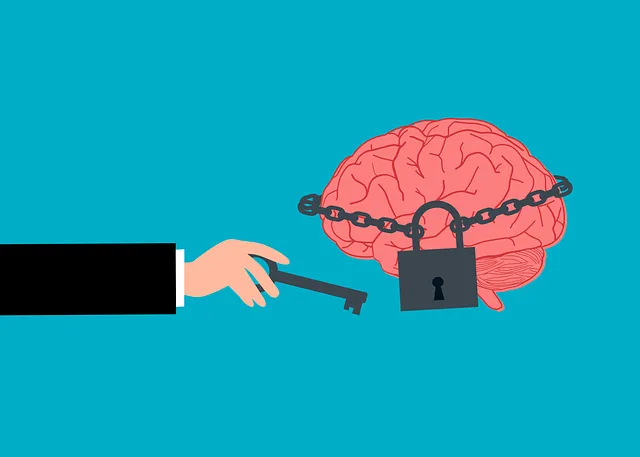Louisville's partnership with Kaiser in offering tailored mental health services bridges healthcare gaps and improves outcomes for underserved populations. These initiatives, powered by Kaiser's expertise, enhance accessibility through cultural sensitivity, inclusive communication, and burnout prevention strategies. By addressing barriers like trust and engagement, they foster well-being within diverse communities. Louisville's proactive mental health strategy, led by Kaiser, includes tailored support, depression prevention, and self-care practices, ensuring comprehensive services accessible to all.
Community outreach programs play a pivotal role in bridging societal gaps, offering essential services where they’re needed most. This article delves into the significance of such initiatives, using Louisville’s experience with Kaiser-offered mental health services as a case study. We explore effective implementation strategies, emphasize measuring success for lasting impact, and provide insights on navigating challenges. Discover how Louisville’s approach can inspire communities worldwide to enhance accessibility and improve lives through targeted outreach.
- Understanding Community Outreach Programs: Their Role and Impact
- Louisville's Approach to Mental Health Services: A Kaiser Perspective
- Implementing Effective Community Outreach Strategies
- Measuring Success and Ensuring Long-Lasting Positive Change
Understanding Community Outreach Programs: Their Role and Impact

Community outreach programs play a pivotal role in bridging the gap between healthcare services and those who may otherwise face barriers to access. These initiatives, often tailored to specific communities’ unique needs, aim to improve health outcomes and promote well-being. In Louisville, for instance, Kaiser offers mental health services through such programs, addressing cultural diversity and sensitivity in mental healthcare practice. By bringing healthcare directly to the community, these outreach efforts enhance accessibility, especially for underserved populations.
Effective outreach goes beyond simply providing services; it involves building trust and fostering open dialogue. Cultural sensitivity in mental healthcare practice is crucial, ensuring that support is tailored to diverse beliefs and backgrounds. Communication strategies that are inclusive and respectful encourage participation and engagement. Moreover, burnout prevention strategies for healthcare providers are essential to sustain these initiatives over time, allowing professionals to offer their best care consistently.
Louisville's Approach to Mental Health Services: A Kaiser Perspective

Louisville has taken a proactive approach to mental health services, with Kaiser playing a significant role. The city’s strategy focuses on early intervention and prevention, aiming to address mental well-being proactively rather than reactively. Louisville’s partnership with Kaiser enables residents access to comprehensive mental health support tailored to individual needs. This includes therapy options, counseling services, and education programs that cater to various age groups and demographics.
One notable aspect of Louisville’s initiative is the emphasis on depression prevention and mood management through community-based programs. Kaiser’s expertise in these areas ensures that residents have access to evidence-based practices for maintaining mental resilience. Moreover, promoting self-care practices as part of a holistic approach empowers individuals to take an active role in their mental health journey.
Implementing Effective Community Outreach Strategies

Implementing effective community outreach strategies is crucial in addressing mental health challenges, especially in areas like Louisville where access to services might be limited. Organizations like Kaiser can play a pivotal role by offering mental health services tailored to the unique needs of the community. This involves understanding local cultural nuances and barriers to care, such as economic disparities or lack of awareness.
By integrating initiatives like Self-Care Routine Development for Better Mental Health, organizations can empower individuals with tools to manage their well-being. Mental Health Policy Analysis and Advocacy is also essential to ensure that outreach programs are sustainable and aligned with community priorities. Moreover, conducting thorough Risk Assessment for Mental Health Professionals safeguards the safety of those providing services, fostering a supportive environment for both clients and caregivers in Louisville.
Measuring Success and Ensuring Long-Lasting Positive Change

Measuring the success of community outreach programs is paramount to ensure they foster lasting positive change. Organizations like Kaiser in Louisville have recognized this, integrating mental health services into their initiatives. Beyond immediate impacts, such as increased awareness and access to resources, sustainable outcomes require continuous evaluation. This involves tracking key metrics like participant engagement, satisfaction levels, and behavioral shifts over time.
The Mental Wellness Podcast Series Production, for instance, can gauge success through listener growth and feedback. Similarly, Trauma Support Services should measure client retention and progress in addressing trauma. Moreover, a comprehensive Risk Assessment for Mental Health Professionals is essential to mitigate risks, ensuring practitioners are equipped to handle complex cases effectively. Such assessments contribute to the overall quality of care and prevent potential harm, fostering an environment conducive to lasting mental wellness.
Community outreach programs, such as those exemplified by Louisville’s mental health initiatives through Kaiser, play a pivotal role in enhancing access to essential services. By employing effective strategies and measuring success through tangible outcomes, these programs can drive lasting positive change within communities. Louisville’s approach underscores the importance of tailored, community-focused solutions for addressing diverse needs, setting a powerful example for cities worldwide looking to improve their residents’ well-being, including mental health services.






